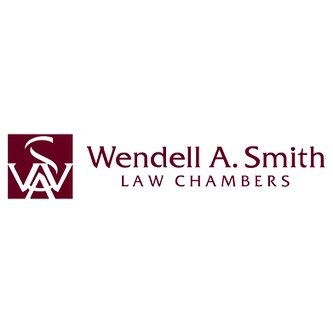Best Education Law Lawyers in Freeport
Share your needs with us, get contacted by law firms.
Free. Takes 2 min.
List of the best lawyers in Freeport, Bahamas
About Education Law in Freeport, Bahamas
Education Law in Freeport, Bahamas encompasses the statutes, regulations, and legal principles that govern the operation of educational systems and institutions. This branch of law covers a range of issues including the rights of students, teachers, and school staff, discrimination, school governance, and educational funding. The Bahamas believes in providing equitable education opportunities, and the legal framework is designed to uphold the standard of education while addressing grievances and disputes that may arise within the educational environment.
Why You May Need a Lawyer
There are several situations where an individual or institution might seek legal help in Education Law. Common scenarios include:
- Disputes over student rights and disciplinary actions.
- Cases of alleged discrimination or harassment within educational settings.
- Issues involving special education needs and accommodations.
- Complexities in the governance and administration of educational institutions.
- Concerns regarding educational compliance with international standards.
- Legal challenges involving curriculum content and teaching methodologies.
Whether it is to resolve a dispute or ensure compliance, legal assistance can be crucial in navigating the complexities of education law.
Local Laws Overview
Education Law in Freeport is influenced by local statutes that ensure the implementation of national education policies and objectives. Key aspects include:
- The Education Act, which provides the legal framework for the operation of schools and educational institutions.
- Laws addressing equal access to education, prohibiting discrimination based on race, gender, or disability.
- Regulations pertaining to teacher certifications and qualifications.
- Statutes governing compulsory education age and attendance requirements.
- Protocols for addressing grievances between parents, students, and educational bodies.
Frequently Asked Questions
What rights do students have under Education Law in Freeport?
Students have the right to receive education in a safe, non-discriminatory environment and are protected against unfair disciplinary actions.
Are there laws against discrimination in schools?
Yes, schools are required to provide equal access to education and cannot discriminate based on race, gender, or disability.
Can parents refuse certain educational content or testing for their children?
Parents may have the right to exempt their children from specific content or testing, but this often depends on school policy and national guidelines.
What actions can a teacher take if wrongfully terminated?
If a teacher believes their termination was unjust, they can seek recourse through legal avenues such as labor tribunals or civil courts.
How are special education needs handled legally?
The law mandates accommodations to be made for students with special educational needs, ensuring they receive an appropriate education tailored to their circumstances.
What legal recourse is available for bullying in schools?
Victims of bullying can report incidents to school authorities, and in severe cases, legal action can be taken under the relevant statutes.
What are the responsibilities of school boards under Education Law?
School boards are responsible for managing and overseeing school operations, ensuring compliance with education standards and regulations.
How can I address a grievance with a school?
Concerns should first be addressed through school channels, and if unresolved, legal advice may be sought for further action.
What should new teachers in Freeport know about Education Law?
New teachers should familiarize themselves with the legal requirements of their profession, including qualifications and classroom management boundaries.
Is homeschooling regulated in Freeport?
Yes, homeschooling is regulated, and families must adhere to guidelines set by the Ministry of Education, including registration and curriculum requirements.
Additional Resources
Several resources are available for those seeking more information or needing assistance with Education Law in Freeport, Bahamas:
- The Ministry of Education - Offers guidance and regulations on educational matters.
- Legal aid organizations - Provide assistance to individuals needing legal help.
- The Bahamas Union of Teachers - A resource for teachers facing employment issues.
- Educational advocacy groups - Support parents and students in navigating education rights.
Next Steps
If you need legal assistance in Education Law, consider the following steps:
- Consult with an attorney specializing in education matters to discuss your case specifics.
- Gather all relevant documentation related to your legal issue, such as correspondences, contracts, and reports.
- Reach out to legal aid services if financial constraints limit access to private legal counsel.
- Contact the Ministry of Education or relevant educational body for official guidance and support.
Taking informed steps towards resolving educational legal issues is crucial in protecting your rights and ensuring fair educational practices.
Lawzana helps you find the best lawyers and law firms in Freeport through a curated and pre-screened list of qualified legal professionals. Our platform offers rankings and detailed profiles of attorneys and law firms, allowing you to compare based on practice areas, including Education Law, experience, and client feedback.
Each profile includes a description of the firm's areas of practice, client reviews, team members and partners, year of establishment, spoken languages, office locations, contact information, social media presence, and any published articles or resources. Most firms on our platform speak English and are experienced in both local and international legal matters.
Get a quote from top-rated law firms in Freeport, Bahamas — quickly, securely, and without unnecessary hassle.
Disclaimer:
The information provided on this page is for general informational purposes only and does not constitute legal advice. While we strive to ensure the accuracy and relevance of the content, legal information may change over time, and interpretations of the law can vary. You should always consult with a qualified legal professional for advice specific to your situation.
We disclaim all liability for actions taken or not taken based on the content of this page. If you believe any information is incorrect or outdated, please contact us, and we will review and update it where appropriate.








